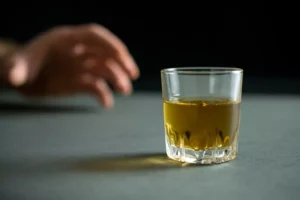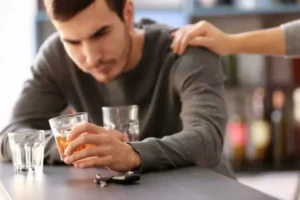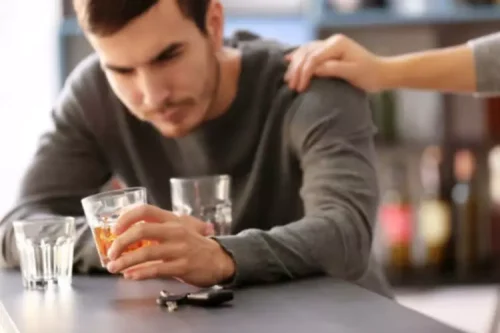
Although both people may have five glasses of wine, researchers anticipate the effect on their weight would be different. A registered dietitian can help you navigate the many dietary factors that influence weight, including calories from alcohol. It can cause weight gain when you consider which other foods are typically consumed with alcohol. From sleeping better to supporting your immune system, there are some significant impacts that your body may experience by embarking on a booze-free journey.
- If alcohol has been your go-to for managing stress or tension, finding new outlets can be helpful.
- Think again if you can circumvent this problem by drinking “skinny” margaritas or clear liquor with soda water.
- This can contribute to weight gain, especially when alcohol is consumed regularly and in excess.
- Heavy drinking may activate hormones that signal appetite, hunger, and stress.
- After your body has depleted all its energy metabolizing the alcohol, it wants to be replenished.
- Most of us like eating pizza, hamburgers, and pasta when drinking alcohol, but these are the worst choices.
Does Alcohol Impair Weight Loss and Muscle Growth?

Alcohol also reduces inhibition and good decision-making, meaning you are much more likely to throw your healthy eating plan straight out of the window and make nachos after you’ve had a few. Use of this website and any information contained herein is governed https://ecosoberhouse.com/ by the Healthgrades User Agreement. Always consult a medical provider for diagnosis and treatment. More research is needed to fully understand how much alcohol may affect weight and why it may do this.
Indirect effect: poor sleep quality
Long-term effects of alcohol include weight gain from its high calories and low nutritional value. In reality, there’s no evidence that drinking beer (or your alcoholic beverages of choice) actually contributes to belly fat. If you’d like to prevent weight gain and still enjoy drinking, try choosing lower-calorie alcoholic beverages and manage how much alcohol you consume. If you want to enjoy a drink but limit your alcohol intake, try subbing in some of our favorite nonalcoholic drinks and spirits, several of which are low-calorie or low-sugar.
Ways That Beer May Cause Fat Gain
- Whether it’s a glass of wine, a pint of beer, or a fruity cocktail, alcoholic beverages add empty calories that can make it harder to lose weight.
- Exercise is also a really effective way for both men and women to lose belly fat.
In a study published in 2018, people who stopped drinking lost 1.6% more weight than those who did not change their alcohol intake. Still, the researchers noted that more research is needed to understand how eliminating or limiting alcohol intake affects weight loss. If all calories were created equal, and you looked at the chart above, weight gain would make sense. But since our body doesn’t breakdown alcohol like any other food, alcohol makes our body gain weight in other ways. Alcohol consumption isn’t as black and white for weight loss and weight gain.
But we don’t deserve it enough for it to be a daily or an every-other-day thing. You could blame your ancestors for this as they needed a way to store energy if they didn’t always have food. In fact, 52% of obese men have levels of testosterone at the low end of the normal range (34). This plant is known to does alcohol make you gain weight be very high in phytoestrogens, plant compounds that can mimic the action of the female sex hormone estrogen in your body (9). Julia Zakrzewski is a Registered Dietitian and nutrition writer.


Many who drink alcohol will also retain water the next day, causing your weight to increase. However, the alcohol bloat will last only 1-3 days if you get right back on your diet and exercise routine. To minimize your risk of gaining weight, make sure to keep your alcohol intake within the recommended limits and lead a healthy, active lifestyle. Interestingly, some studies have linked drinking moderate amounts of wine with lower body weights (35). The link between weight gain and drinking alcohol is stronger in men than women.
- If you’re struggling with substance abuse, or are worried about your mental health, consider calling the Substance Abuse and Mental Health Administration’s national hotline.
- People who consume excess food and drinks that are high in empty calories have a higher risk of having overweight and obesity than others.
- Alcoholic beverages are often high in empty calories, with about seven per gram.
- If you like bubbles, try a gin and soda (tonic water is full of added sugar) with a squeeze of fresh lime juice.
- 1 to 2 alcoholic beverages in a day should be able to be burned off by your body before they lead to weight gain.
- Always consult a medical provider for diagnosis and treatment.
In addition, your body may not be able to absorb nutrients properly. Hunger and satiety hormones can also become thrown off, causing you to eat more. What’s more, studies have shown that the amount of alcohol you consume and how frequently you consume it also matter when it comes to your waistline. Visceral fat is metabolically active, which means it can interfere with your body’s hormones.
- There are several direct and indirect ways that heavy drinking can make you gain weight or, more specifically, gain body fat.
- Ensure you eat a hearty meal before going out, and keep healthy snacks on hand if you get hungry.
- The not-so-simple answer is that, yes, drinking alcohol can probably cause weight gain in many people.
- “Some people think of the effects of alcohol as only something to be worried about if you’re living with alcohol use disorder, which was formerly called alcoholism,” Dr. Sengupta says.
- If you are trying to lose weight, decreasing your alcohol calories is a worthwhile change.
Overall, the empty calories that come from alcoholic drinks are a significant contributor to gaining weight from alcohol. However, most people don’t drink straight alcohol on its own—they’re drinking beer, wine, cider, or mixed drinks, the last of which can be shockingly high in calories. However, added calories aren’t the only aspect of alcoholic drinks that can affect your health.

This cycle of emotional eating and alcohol use can result in weight gain and other health issues. This imbalance can lead to overeating and cravings for high-calorie foods, contributing to weight gain. Women who participated in binge drinking were Substance abuse not only more likely to have obesity but were also more likely to be attempting weight loss. If you’re working on losing weight, then you know it can involve a lot of ups and downs (literally). You’ve likely considered what you’re eating, what you’re not eating and of course, how much you’re moving.




















